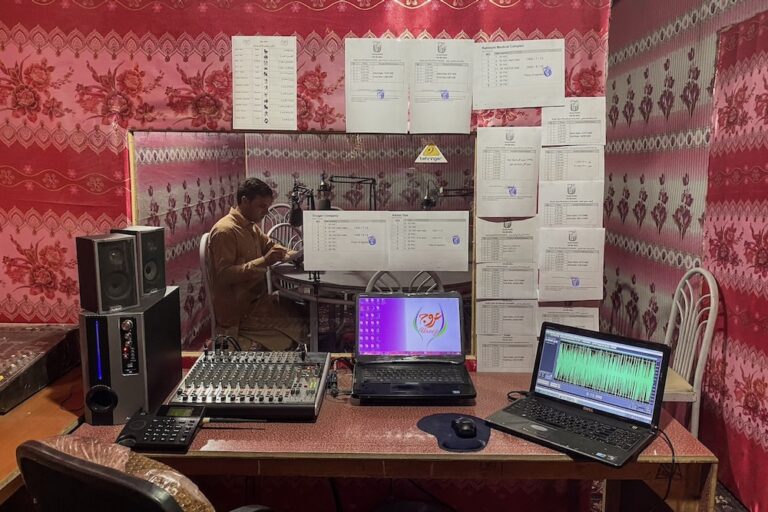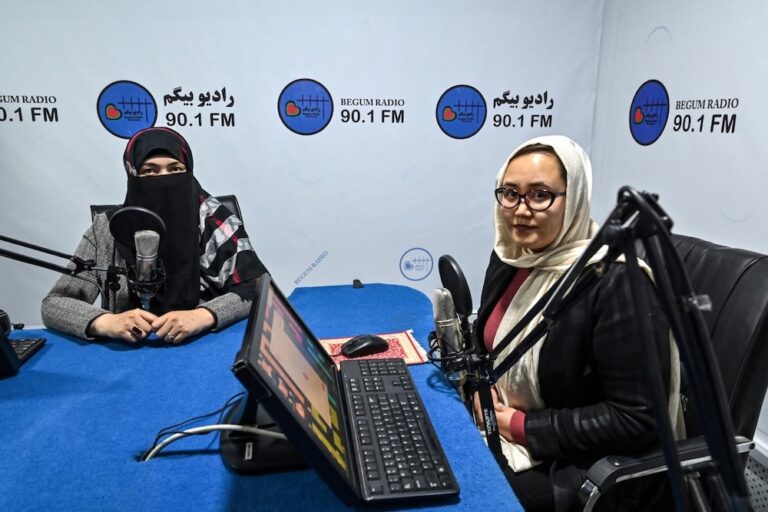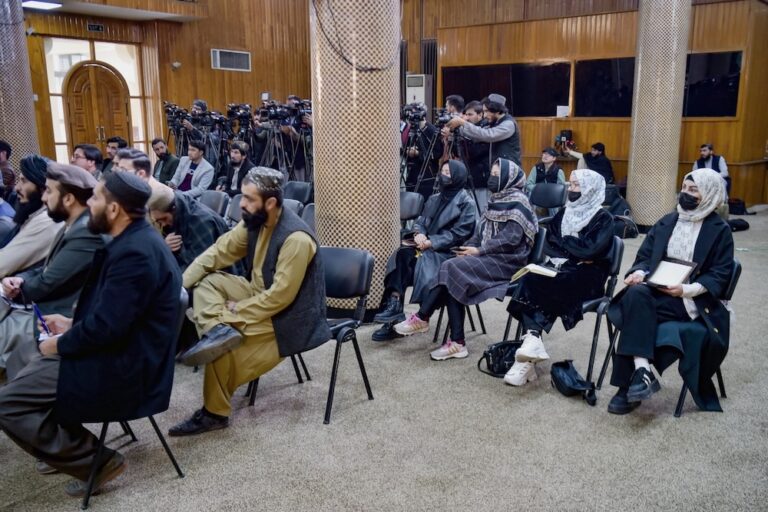(RSF/IFEX) – On 21 January 2003, RSF expressed its serious concern over the obstruction to the development of free media in the wake of the Supreme Court’s 19 January ruling outlawing cable television. The ban follows complaints that certain programmes are “anti-Islamic”. In December 2002, the court banned the only cable operator in the eastern […]
(RSF/IFEX) – On 21 January 2003, RSF expressed its serious concern over the obstruction to the development of free media in the wake of the Supreme Court’s 19 January ruling outlawing cable television. The ban follows complaints that certain programmes are “anti-Islamic”. In December 2002, the court banned the only cable operator in the eastern city of Jalalabad.
RSF called on Information and Culture Minister Sayeed Makhdoom Raheen to see to it that the cable broadcasting licences issued by the government of President Hamid Karzai are respected. The organisation said it was “shocked” that an Afghan court is using the same arguments as the fallen Taliban regime to deprive Afghans of entertainment and news programmes.
Chief Justice Mawlazi Fazl Hadi Shinwari said he had acted for religious reasons. People had complained about “half-naked singers and obscene episodes in movies,” he said. “We are Afghans and Muslims, with Islamic laws and values. We had to issue this order. Now the government must enforce it,” he added.
Police shut down five cable television operators in Kabul on 19 January. The information minister publicly opposed the court ban, specifying that his ministry had the exclusive mandate to authorise or ban cable operators. “Our policy towards cable television [operators] is one of freedom, but they must also obey the new media law,” the minister said. “Of course, stations that are anti-Islamic or do not respect Afghan traditions will be forbidden,” he added. The issue is expected to be discussed at the next meeting of the Information Ministry’s cabinet, scheduled for 27 January.
The five cable operators described the ban as “unfair.” Star Cable Network head Said Mostafa said government officials had asked him to end his broadcasts until clear rules are drawn up concerning the content of programmes.
Cable television stations started broadcasting in Kabul in late 2001 after the fall of the Taliban, who had banned television under the pretext that it was “against Islam teachings.” The cable stations, which broadcast news programmes, music, sports and films, have quickly become very popular.


